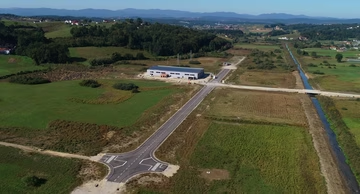
Despite so much work waiting to be done, Bosnian politicians have not formed the government yet, but they keep receiving their salaries from Bosnian citizens – and for what, the British Ambassador to Bosnia and Herzegovina Matt Field asked speaking to N1, on Thursday.
“I keep saying I wish Bosnian politicians would put State interests first because the citizens deserve better and they should demand better conditions,” Field said.
After the October 2018 general election, Bosnian politicians have been in a deadlock when it comes to talks on the formation of the government.
The prime-minister-designate Zoran Tegeltija, coming from the strongest Serb ethnic-oriented Alliance of Independent Social Democrats (SNSD), said he would not prioritise Bosnia's NATO accession process during his mandate, which is something Bosniak and Croat members of the country's tripartite Presidency disapprove of. Therefore, they continue to approve his appointment before he and his party concede to working on Bosnia's NATO accession process.
The Ambassador confirmed that election day is the most important day for the citizens, and added:
“According to the European Commission's opinion, the election system can be fairer and more just and more direct. A good portion of this relates to Bosnian citizens having real elections, multiple options so that next time, they could decide based on the results of politicians' work.”
on the other side, Bosnian southern City of Mostar has not held the local election in over 11 years.
“This is not a normal situation – 11 years without elections. The (European Commission's) opinion is clear – election in Mostar must be held. I hope we will see the election next year, but the political actors need to establish a dialogue and have more responsibility,” Field emphasised.
The local elections in the City of Mostar were last held in 2008. Two years later, the Constitutional Court of Bosnia and Herzegovina acted upon motion of Croat representatives in the state Parliament, assessing as unconstitutional parts of the Bosnia’s Election Law which refer to the City of Mostar. The court tasked the state Parliament in 2010 to amend the Election Law regarding the provisions which treat the electoral rules in that city. Until today, it did not happen.
Speaking about Bosnia's judiciary, he concluded that it faces many challenges.
“The rule of law is the key to every successful country. The citizens should trust their judiciary and that's a priority. No one's satisfied with the state of Bosnia's judiciary, not even the people in these institutions. We (the UK) offered and continue to offer help in the implementation of recommendations and opinions, but we're not satisfied with the results achieved so far. We need to work together on drafting a new law on the High Judicial and Prosecutorial Council (HJPC) which would further improve its work,” Field added.
The HJPC is a top judicial institution in the country which appoints and disciplines all the judges and prosecutors in the country. Lately, the institution has faced many affairs undermining its credibility with politicians and the public.
In the end, the Ambassador touched upon Bosnia's NATO integration process saying that if Serbia can have constructive cooperation with the Alliance, so can Bosnia. According to him, the accession process is important for Bosnia because, just like the EU accession process, it too insists on reforms which would improve the lives of citizens – which is a priority.
His message to all the citizens of Bosnia and Herzegovina is that the UK remains the country's friend and that its support has doubled. He said he would work for the better future of this country and that citizens should demand more from their politicians, and better living conditions.
Kakvo je tvoje mišljenje o ovome?
Učestvuj u diskusiji ili pročitaj komentare





 Srbija
Srbija
 Hrvatska
Hrvatska
 Slovenija
Slovenija



























































